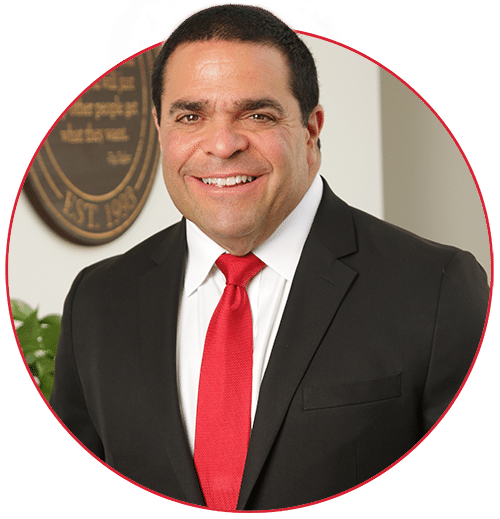If I Go to the Hospital After a Car Accident, Who Pays?
Last updated Wednesday, October 30th, 2024

If “if I go to the hospital after a car accident who pays” is a concern for you, going to the hospital after a car accident might leave you worrying about who will foot the bill for your medical treatment. Typically, the payment responsibility starts with your auto insurance coverage, which can include personal injury protection (PIP) in some states, or medical payments coverage (MedPay). Depending on the circumstances of the accident and your insurance policy, you may also turn to health insurance, or seek reimbursement from the at-fault driver’s insurance. This article will guide you through the complex interplay of insurance coverages, legal rights, and out-of-pocket costs to provide you with a clearer picture of what you can expect financially after a car accident.
Key Takeaways
- Individuals are often responsible for paying medical bills incurred after a car accident, and reviewing bills meticulously, with the assistance of a medical billing advocate if necessary, is important to avoid overpaying.
- Auto insurance policies generally cover medical costs first before health insurance kicks in post-accident, and understanding policy terms and state laws is crucial to effectively manage medical bills and avoid unnecessary expenses.
- Legal representation can assist in receiving necessary medical treatment without financial pressure and ensure compensation for medical expenses from the at-fault driver’s insurance, particularly in fault states and with issues of subrogation.
Navigating Medical Bills After a Car Accident
In the aftermath of an auto accident, the first order of business is often seeking medical attention for any injuries. However, the reality is that individuals are typically responsible for the payment of their medical bills as they are incurred after a car accident. This responsibility can be overwhelming, especially when dealing with the physical and emotional trauma of an accident.
Reviewing your medical bills meticulously is important to avoid overpaying. Verify the treatments listed, confirm personal details like your name and insurance information, and question any charges that seem incorrect. While recovering from car accident injuries, this daunting task is a necessary step in managing your medical expenses.
Enlisting the help of a medical billing advocate can greatly reduce this burden. These professionals specialize in:
- Identifying billing errors
- Appealing insurance claim denials
- Obtaining medical rebates and financial aid
- Negotiating prices
Their expertise can be invaluable in reducing your medical bills and ensuring you’re not paying for services you didn’t receive, especially when it comes to emergency room visits.
Identifying the Responsible Party
If you’re not at fault for the accident, you might be wondering why you’re responsible for the medical bills. In fault states, the at-fault driver’s insurance may eventually be responsible for covering your medical costs. The keyword here is “eventually.” The process can be long and complicated, requiring you to file a claim with the at-fault driver’s insurance company and possibly even take legal action.
Meanwhile, promptly informing your own insurance company about the accident is of utmost importance. They can assist in claiming from the at-fault driver’s insurer or cover losses under uninsured or underinsured motorist coverage. Your insurer’s role in this process is critical, and prompt communication with them can facilitate your pursuit of compensation.
Health Insurance vs. Auto Insurance: What Covers What?
When it comes to paying for medical expenses after a car accident, your auto insurance policy is generally the first in line. It covers medical expenses up to the policy limits before your health insurance comes into play. However, the specifics of which insurance pays for what expenses can depend on the terms of your auto and health insurance policies and the applicable state laws.
Grasping this sequence is key to effectively managing your medical bills after an accident. It’s not just about knowing who pays first; it’s about understanding your coverages, knowing your rights, and making informed decisions about your medical care. A lack of understanding can lead to financial stress and unnecessary out-of-pocket expenses.
Immediate Medical Attention and Payment Concerns
Your health should never be compromised after a car accident. Even if no serious injuries are immediately evident, it is vital to seek immediate medical attention and go to the hospital. Injuries like internal bleeding or traumatic brain injury may not be visible or symptoms might be masked by adrenaline rush. Delaying medical attention can lead to these injuries worsening and can also affect your ability to claim compensation for your injuries.
Payment concerns should not deter you from getting the medical help you need. Hospitals may offer payment plans or reduced rates for uninsured patients. In cases where health insurance is absent, lawyers can assist by sending a letter of representation to medical providers to hold off on billing patients while a legal claim is pursued to recover damages for those expenses. This allows you to receive necessary treatment without immediate financial pressure.
The Role of Personal Injury Protection (PIP) in Your Auto Insurance Policy
In no-fault states, Personal Injury Protection (PIP) plays a significant role. It covers medical expenses regardless of who caused the accident. It’s mandatory and serves as an alternative to the tort liability system, ensuring that victims can receive prompt medical care without having to establish fault or file a personal injury claim.
PIP extends to the policyholder, their passengers, and anyone driving the insured vehicle, regardless of their insurance status. It also provides benefits even if the other involved driver does not have insurance. In addition to covering medical bills, PIP in no-fault states may cover partial lost wages for minor crash damages up to a set limit.
A clear understanding of your PIP coverage offers peace of mind and financial protection in case of an accident.
Seeking Reimbursement from At-Fault Driver’s Negligence

A car accident lawyer plays a vital role in:
- Proving the at-fault driver’s liability to ensure their insurance covers medical expenses resulting from the accident
- Recovering out-of-pocket costs such as deductibles and co-pays through a settlement from the at-fault driver’s insurance company
- Providing legal assistance to help ensure you receive the compensation you deserve
Legal assistance can be invaluable in these situations.
When Health Insurance Steps In
After car insurance coverage limits have been reached, health insurance may cover treatment for car accident injuries, depending on in-network or out-of-network provider restrictions. If you don’t have auto insurance or your coverage is insufficient, your health insurance may take over covering medical expenses as per your plan specifics.
However, using health insurance for accident-related medical bills means you’ll be responsible for paying deductibles and co-pays. You might be reimbursed for these if you win a settlement from the at-fault driver’s insurance. Understanding these potential out-of-pocket expenses and planning for them is critical.
Understanding Subrogation in Car Accident Cases
Subrogation is a concept that often comes into play in car accident cases. It’s when an insurance company pays damages on behalf of the liable party and then seeks reimbursement from the individual who originally owed the debt. The primary purposes of subrogation include:
- Preventing double recovery by the insured
- Facilitating speedy medical care
- Maintaining low insurance costs by avoiding multiple settlements for the same incident.
Parties commonly involved in subrogation processes include health insurance companies, auto insurance companies, and government services like Medicare. Subrogation allows insurers to pursue the at-fault party for reimbursement after covering claim expenses, and it’s typically handled by the insurer without impacting the insured’s driving record or coverage.
Legal Assistance in Recovering Medical Expenses
Getting legal advice can be beneficial if you’re overwhelmed by medical bills from a car accident. An attorney can:
- Provide clarity in navigating insurance coverages
- Help pursue necessary compensation for incurred damages
- Conduct thorough investigations of accidents
- Establish liability
- Assist in the complexities of subrogation and insurance negotiations
A personal injury lawyer at Isaacs & Isaacs provides legal and emotional support, navigates state-specific insurance laws, and works on a contingency fee basis. This ensures that the victim’s interests align with the lawyer’s efforts. Lawyers are vital in states with contributory negligence laws and for understanding the statute of limitations, ensuring that victims are equipped to overcome legal challenges specific to their jurisdiction and case.
Handling Disputes with Insurance Companies
Disputes with insurance companies over medical bills can be stressful and confusing. In such situations, enlisting a lawyer’s expertise can leverage the legal system to your benefit. Sometimes, suing the at-fault driver’s insurance company may become necessary to receive fair compensation, especially when they do not offer an adequate settlement.
Keeping a close eye on insurance claims is essential, as it can lead to significant savings by correcting billing mistakes made by insurance companies. Medical billing advocates and consumer protection attorneys can provide consultations on handling disputes with insurance companies, while choosing the appropriate professional depends on whether an issue is legally complex.
Out-of-Pocket Costs and How to Manage Them
Managing out-of-pocket costs after a car accident can be challenging, but there are strategies to help. Choosing auto insurance PIP as the primary over health insurance can reduce out-of-pocket expenditures by covering costs without the need for meeting high health insurance deductibles. Keeping detailed records, seeing car accident doctors promptly to consolidate appointments, and negotiating lower costs and payment plans with providers can also help manage your out-of-pocket expenses more effectively.
Utilizing financial assistance programs provided by hospitals, particularly nonprofit ones, and exploring payment arrangements can significantly alleviate the burden of medical expenses not covered by insurance. Clear communication with healthcare providers and attorneys regarding the billing process and financial responsibilities can help ensure that the settlement covers the necessary medical treatment costs.
Frequently Asked Questions
What does the ER do for whiplash?
Seek treatment for whiplash in urgent care and consider visiting a chiropractor for recovery. Emergency rooms may provide pain relievers or muscle relaxants, but they won’t necessarily aid in whiplash recovery.











